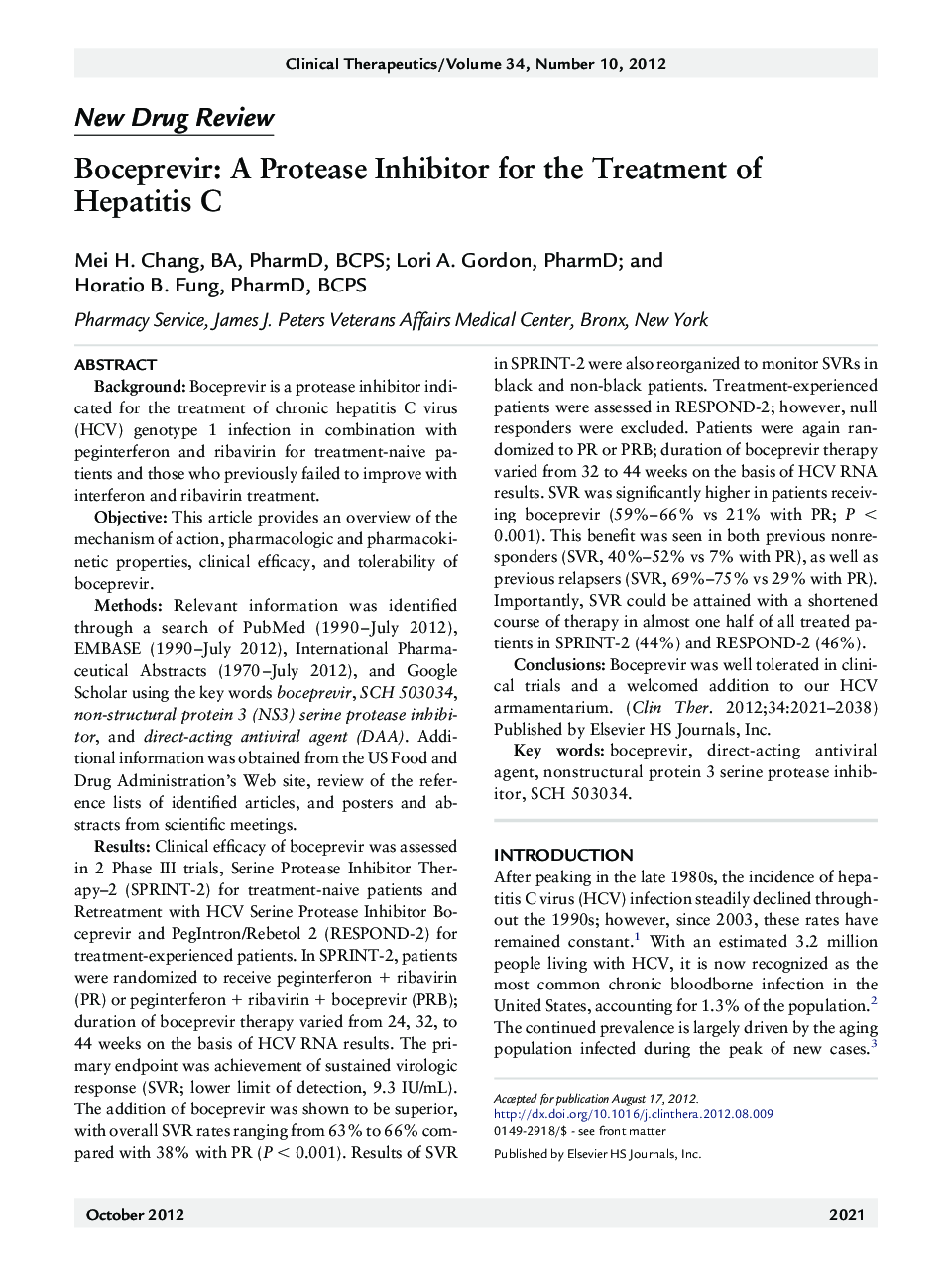| کد مقاله | کد نشریه | سال انتشار | مقاله انگلیسی | نسخه تمام متن |
|---|---|---|---|---|
| 5825753 | 1119936 | 2012 | 18 صفحه PDF | دانلود رایگان |

BackgroundBoceprevir is a protease inhibitor indicated for the treatment of chronic hepatitis C virus (HCV) genotype 1 infection in combination with peginterferon and ribavirin for treatment-naive patients and those who previously failed to improve with interferon and ribavirin treatment.ObjectiveThis article provides an overview of the mechanism of action, pharmacologic and pharmacokinetic properties, clinical efficacy, and tolerability of boceprevir.MethodsRelevant information was identified through a search of PubMed (1990-July 2012), EMBASE (1990-July 2012), International Pharmaceutical Abstracts (1970-July 2012), and Google Scholar using the key words boceprevir, SCH 503034, non-structural protein 3 (NS3) serine protease inhibitor, and direct-acting antiviral agent (DAA). Additional information was obtained from the US Food and Drug Administration's Web site, review of the reference lists of identified articles, and posters and abstracts from scientific meetings.ResultsClinical efficacy of boceprevir was assessed in 2 Phase III trials, Serine Protease Inhibitor Therapy-2 (SPRINT-2) for treatment-naive patients and Retreatment with HCV Serine Protease Inhibitor Boceprevir and PegIntron/Rebetol 2 (RESPOND-2) for treatment-experienced patients. In SPRINT-2, patients were randomized to receive peginterferon + ribavirin (PR) or peginterferon + ribavirin + boceprevir (PRB); duration of boceprevir therapy varied from 24, 32, to 44 weeks on the basis of HCV RNA results. The primary endpoint was achievement of sustained virologic response (SVR; lower limit of detection, 9.3 IU/mL). The addition of boceprevir was shown to be superior, with overall SVR rates ranging from 63% to 66% compared with 38% with PR (P < 0.001). Results of SVR in SPRINT-2 were also reorganized to monitor SVRs in black and non-black patients. Treatment-experienced patients were assessed in RESPOND-2; however, null responders were excluded. Patients were again randomized to PR or PRB; duration of boceprevir therapy varied from 32 to 44 weeks on the basis of HCV RNA results. SVR was significantly higher in patients receiving boceprevir (59%-66% vs 21% with PR; P < 0.001). This benefit was seen in both previous nonresponders (SVR, 40%-52% vs 7% with PR), as well as previous relapsers (SVR, 69%-75% vs 29% with PR). Importantly, SVR could be attained with a shortened course of therapy in almost one half of all treated patients in SPRINT-2 (44%) and RESPOND-2 (46%).ConclusionsBoceprevir was well tolerated in clinical trials and a welcomed addition to our HCV armamentarium.
Journal: Clinical Therapeutics - Volume 34, Issue 10, October 2012, Pages 2021-2038